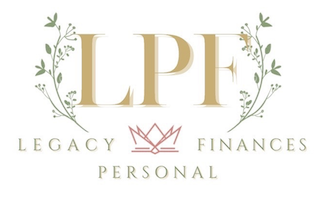You are great with finances and you just want some quick tips to help you boost your finances. Even if you are not the best with finances. This is the page for you!
*All tips have been generalized and may need to be adjusted to fit your personal situation.
Setting Goals
Setting goals should be interwoven into every aspect of your finances. Knowing what your goals are is important mainly so that you know the purpose of your money, and how you should be delegating it. We suggest that you use S.M.A.R.T. goals. Specific, Measurable, Achievable, Relevant, and Timely. You can start by scrolling back up to Retirement and thinking of some SMART goals for that area. Make sure to think about the finances that are involved in that.
Credit Score
Your credit score is important when attempting to make make big life decisions, purchases, or borrowing money. It tells a person you can be trusted to an extent to repay their loan or balance. Your score can range from 300 to 850. My goal is to help all my clients scores to reach the exceptional range 800 to 850. There are three general companies that will provide your FICO credit information Experian, Equifax, and TransUnion. FICO is one of the most popular companies providing accurate credit scores. Your score is comprised of the following information: how good you are at paying your bills and balances on time, how are you using your credit, how long you have had credit, how many recent applications of credit you have, and the type of credit you have i.e. credit cards versus mortgages. This list is in order of importance.
Debt
Most individuals think of debt as all bad. We at LPF hope that people keep debt to the very minimum. However Debt helps build your credit which comes in handy for a number of reasons. One has debt when something, most commonly money, is owed to another individual or entity. Debt can be secure and un-secure. Secure debt is backed by an asset. Examples are car loans and mortgages. Un-secure debt you can guess is not connected with an asset or collateral. The best example is credit cards. LPF is not a fan of credit cards. They are a great way of building your credit especially if when you use them you pay them off as soon as possible to avoid interest. The best way to deal with debt is to not deal with debt. Save, pay for items with cash, and borrow from yourself. Since this can be extremely difficult and can take a very long time for example saving for a house. We work with individuals and families to teach them how to keep debt to a minimum and how to use debt effectively if they have to deal with debt to meet their goals faster.
Loans
Beware of loans. The best advice I can give on this matter is to save and borrow from yourself. When life happens and savings just will not cover your needs a loan may be a viable option. I suggest that you only take out a loan for very important expenses like a car, home, or school. Those are also the most common type of loans. Another common loan is a business loan. You can also apply for a personal loan for various matters including car, home, school, and business. The application process for the loan will vary based on the type of loan. Generally the application process will review your credit score, employment history, tax returns, financial documents, and personal information. It can take 24 hours to a few months to complete a loan process. Repayment options differ as well.
Investing
Investing can be a complicated way to gain, earn, or save money! We suggest that you find a capable broker to guide you and help you pick what stock to invest in, when to move your money to other stock, or when to remove your money or a portion of it from the market. If you choose to invest on your own there are a number of websites and books that can help you learn how to do so. You can find a couple of helpful ones on the resource page of this site.
Retirement
It is never too early to start preparing for your retirement. There are a few ways you can start saving for the occasion. The first step you should take is to envision what you want out of retirement. Next have a budget for your cost of living. These two steps should help you figure out how much money you will need in retirement. Now how will you fund it? You can open up a personal savings account and deposit the money that is needed in there. By now you should know how much to withdrawal from your paychecks. This method gives the lowest returns as savings accounts provide low percentage rates for accruing interest. However, saving money by keeping it under the mattress or elsewhere accrues no additional money. Other common ways to save are IRA's, Roth IRA's, and 401(k)'s. These offer much higher rates of interest. There are often other benefits depending on your employer. Whatever method you choose to save, save.
Wills and Trusts
Next to retirement, death is another topic individuals do not like to discuss. However it is very important. If you care about what happens to your material possessions after you are gone than this is important. Even if you do not have big assets like a house you still may care who gets your favorite sweater, your cat, or your basketball. It is important that you think about these things and have it documented. If you do not have the money to have someone, normally an estate attorney, work with you and have a will and/or trust created then it is easy to find a template online and do it yourself. I suggest you save and have someone do it for you though. The price can range from $50 to $1,000.
*All tips have been generalized and may need to be adjusted to fit your personal situation.








